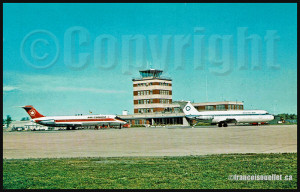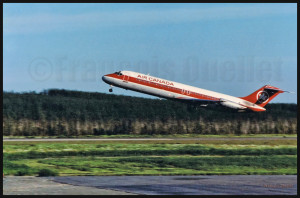Around 1996, during the summer, an Air Canada DC-9 captain visited the Transport Canada flight service station in Québec City (CYQB) to receive a last minute briefing on the weather conditions between Quebec and Toronto.
All the passengers were already on board, but the captain had noticed a rapid change in the size of thunderstorms approaching the Québec City airport. Wishing to make the best decision, he requested the latest information on the approaching line of thunderstorms before proceeding with the takeoff.
The weather radar and satellite pictures showed a wall of convective cells that a DC-9 would not be able to go through. It would not fly high enough nor be able to go around the system unless it made a detour through Val-d’Or to the north or the Tennessee to the south.
The captain already knew the consequences of his decision. He nonetheless took the phone and called Air Canada’s dispatch in Toronto, announcing that he would not leave Quebec until the weather was acceptable. He could envision the missed transfers in Toronto for most of his passengers, and their bad mood in face of the lengthy delays he expected in Québec City.
Nevertheless, his decision was made and he left the flight service station satisfied. He knew very well that a line of heavy thunderstorms had often been the cause of accidents and that no aircraft, whatever the size, was safe when dealing with a wall of severe thunderstorms.
The flight service specialists (FSS) were happy with the captain’s decision since, throughout the years, the FSS often witnessed far less commendable behaviour from pilots of all categories. Judgment is the capacity to evaluate consequences, and it is not given to everybody.
For more real life stories about being a FSS in Quebec City, click on the following link: Flight service specialist (FSS) in Quebec City

